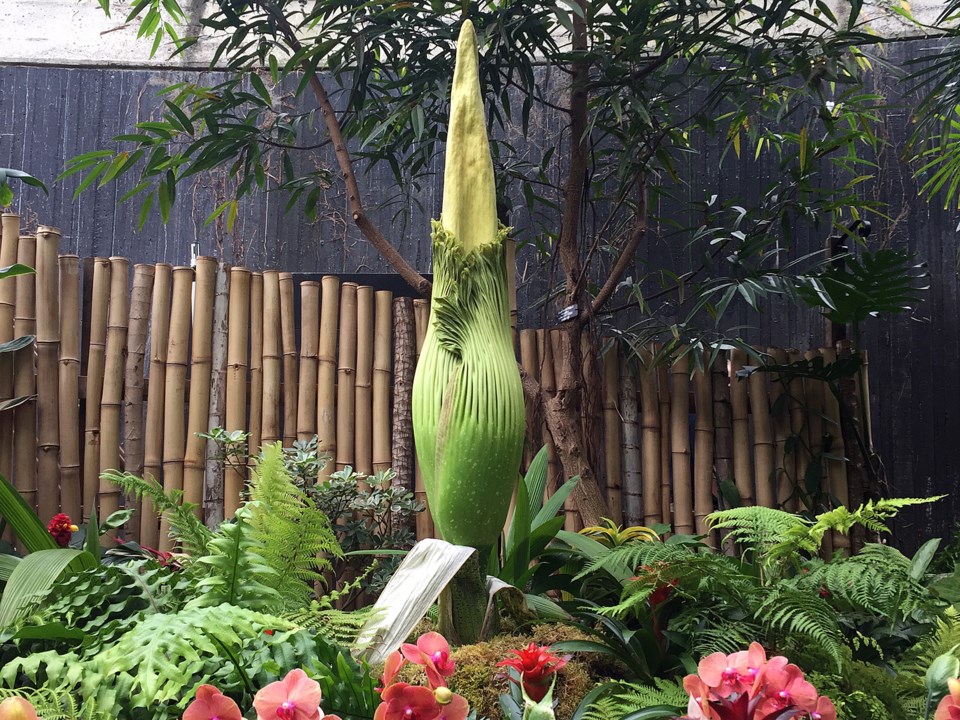The Vancouver Park Board is inviting residents to rally around rotting flesh, spikes and a corpse.
Far be it from promoting the next Morbid Angel gig in town, the park board is instead celebrating the horrid stench of the world’s largest flower, which is likened to the smell of discarded diapers, hot garbage or even rotting flesh.
Its Latin name is titan arum, but its heavy metal sounding name is corpse flower, and the world’s biggest bud is about to bloom at the Bloedel Conservatory.
It’s a process that can take upwards of 10 years in some cases, but there’s a small window — within the next 48 hours — that Vancouverites can see nature unfurl in all its horrific majesty.
Its bloom is likely the first ever in B.C.
But there’s more…
Outside of exposing oneself to the smell of garbage or rotting flesh, locals are also invited to name the putrid plant. Some of the choices include Stinky McStinkerton, Uncle Fester or Odorable.
The park board describes corpse blooms as very rare and unpredictable. The Bloedel specimen is six years old and ready to pop. The bud has grown exponentially recently and the flower end — referred to as a spike — has grown five feet in six weeks.
The plants produce the largest corm (or bulb) in the world, with some growing to 200 pounds. Leaves reach up to 15 feet in length to absorb the sun’s rays, while the flower spike can grow up to 12 feet.
Once the corm has enough energy to produce a flower bud and attempt to reproduce, “a visual event unfolds.”
Corpse flowers are native to Indonesia and require between seven to 10 years of vegetative growth before blooming for the first time. Some might not bloom again for 10 years, others wait for two to three years.
Which makes the next few days all the more memorable.
“When it blooms, it will unfurl its large flesh-coloured petal and start to emit rancid fumes to attract pollinator insects like carrion beetles and flesh flies that feed on dead animals,” a news release from the park board states. “The public doesn’t need to worry about encountering such insects at Bloedel Conservatory.”
The Bloedel Conservatory is planning to extend its hours for a “smell-it-while-you-can” experience during the fleeting blooming spectacle which will last just 24 to 48 hours.
To learn more about nature’s horrific oddities, log on to vancouver.ca/corpseflower.
@JohnKurucz



